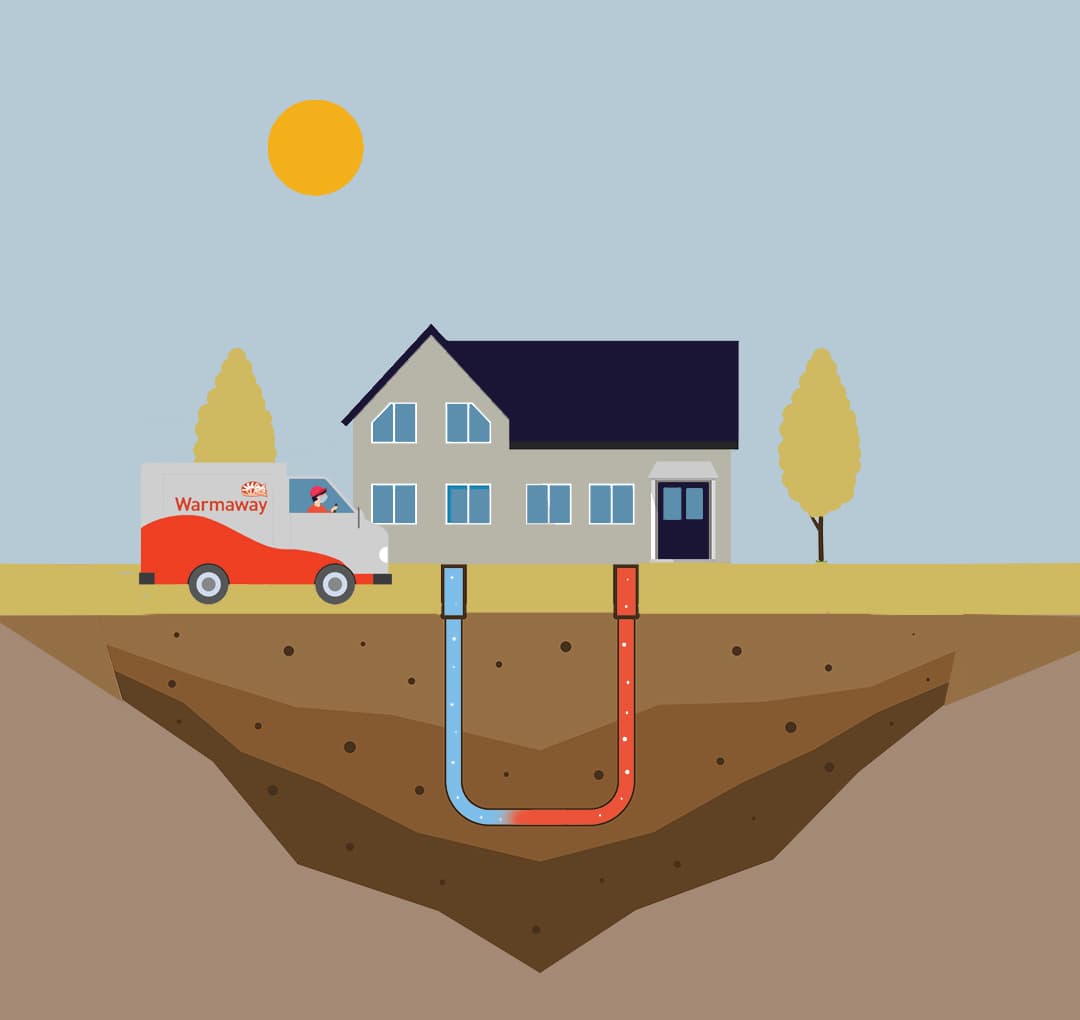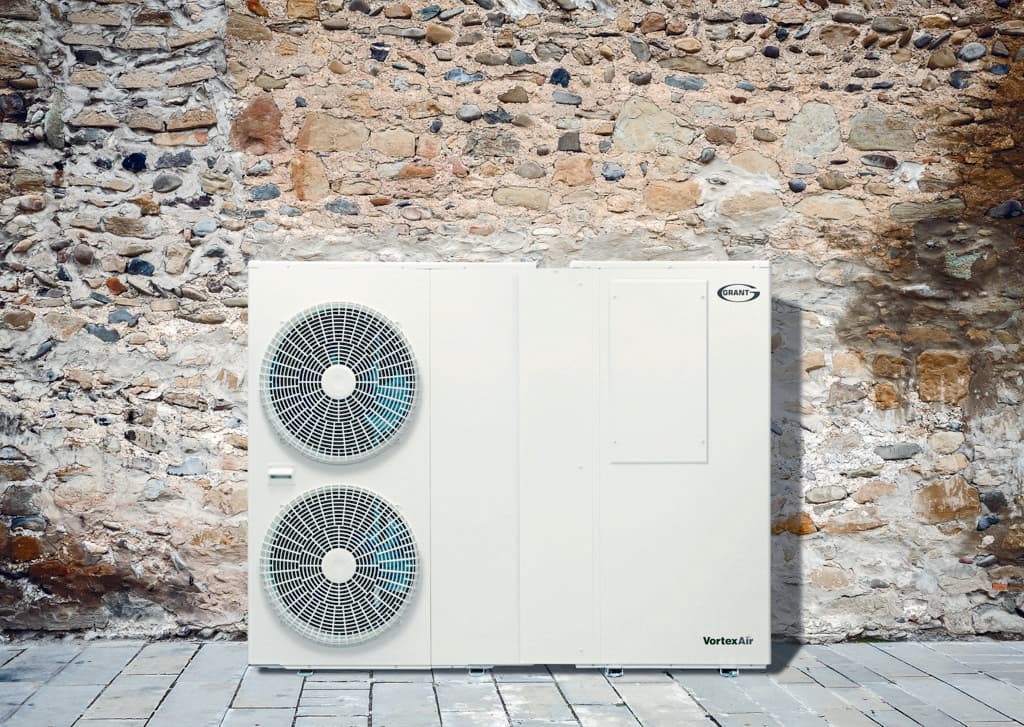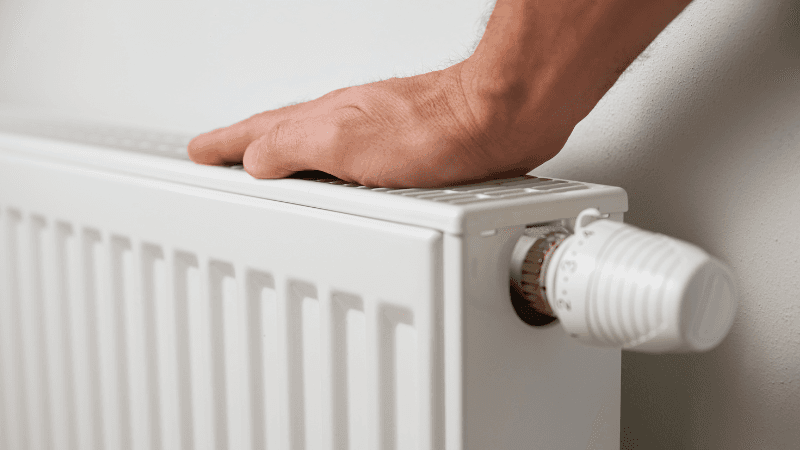The 11 most common heat pump questions – answered!

As government initiatives provide extra funding for high-efficiency, low carbon heating systems, learn about the heat pumps that can heat your home.
Types of heat pump?
- Air to water (Air source heat pump)
- Geothermal (Ground source heat pump)
- Water source
How does a heat pump work?
Heat pumps work in much the same way as your kitchen fridge! Whereas your fridge takes thermal energy from within and moves it outside, a heat pump will do the reverse and bring outdoor heat inside your home. To better understand the science behind these heat pump systems, read our in-depth article here.
Can heat pumps work when the temperature drops below 0°C?
Of course! Although the temperature might be below 0°C, that doesn’t mean there’s no heat in the air. The Celsius scale is based around the boiling and freezing points of water, not the amount of heat in the air. In reality, there is heat in the air until you reach absolute zero at -273°C.
What is the cost of a ground source heat pump?
According to the Energy Saving Trust, it usually costs between £14,000 and £19,000. This price varies according to several factors such as the size of your house, the number of occupants, the insulation, and the size of your garden. Get in touch with our heating engineers who will be able to give you a more personalised quote.
What is the cost of an air source heat pump?
Air source heat pumps have less components and are much easier to install than their ground source equivalents. The price range reflects this as you can buy an air source heat pump and have it installed for between £8,000 and £15,000.
How long does heat pump installation take?
If you’ve opted for an air source heat pump, then you can generally expect your heat pump to be fitted within two days. If you’ve chosen a ground source heat pump, this will be a longer process largely due to the work that needs to be done with the laying of ground loops under your garden. In total, the ground loops take around a week to install and an additional day or two to connect the completed heat pump system to your home.
Are heat pumps noisy?
Heat pumps are generally very quiet – similar or quieter to the equivalent fossil fuel boiler.
GSHP < 42 decibels
ASHP < 60 decibels
How much space does a heat pump need?
To install a heat pump, the most important thing is that you’re the homeowner!
ASHP – Room for the unit to be installed against an outer wall of your home with a good airflow.
GSHP – A ground source heat pump usually needs roughly 700 square metres of land in which to lay ground loops. In situations where there isn’t sufficient space horizontally, a vertical borehole can be used. This achieves the necessary surface area by tunnelling downwards instead – of course this would require your garden to have access for heavy machinery.
Do I need planning permission?
In most cases, a ground or air source heat pump won’t need planning permission as this addition falls within the category of permitted developments. To confirm that your property will meet the necessary requirements for permitted developments, check the specifics here.
What carbon emissions does a heat pump produce?
Whilst the heat pump itself will not produce any carbon emission on-site, however it does require electricity to run which means an external power source is needed. The way that heat pumps differ from a more traditional combi boiler is from the efficiency of the different systems – while a gas/oil boiler can provide 90-96% efficiency, a heat pump manages 300% and can even push to 400%. In more practical terms, this means that for every kilowatt of electricity that you’re drawing from the grid, you’ll be able to produce 4kilowatts of heat whereas a boiler would produce less than one kilowatt of heat.
How often do heat pumps need maintenance?
It’s advised that you have your system checked yearly. By doing this you can ensure the longevity of your heat pump and make sure to avoid any heating problems in the middle of winter!


